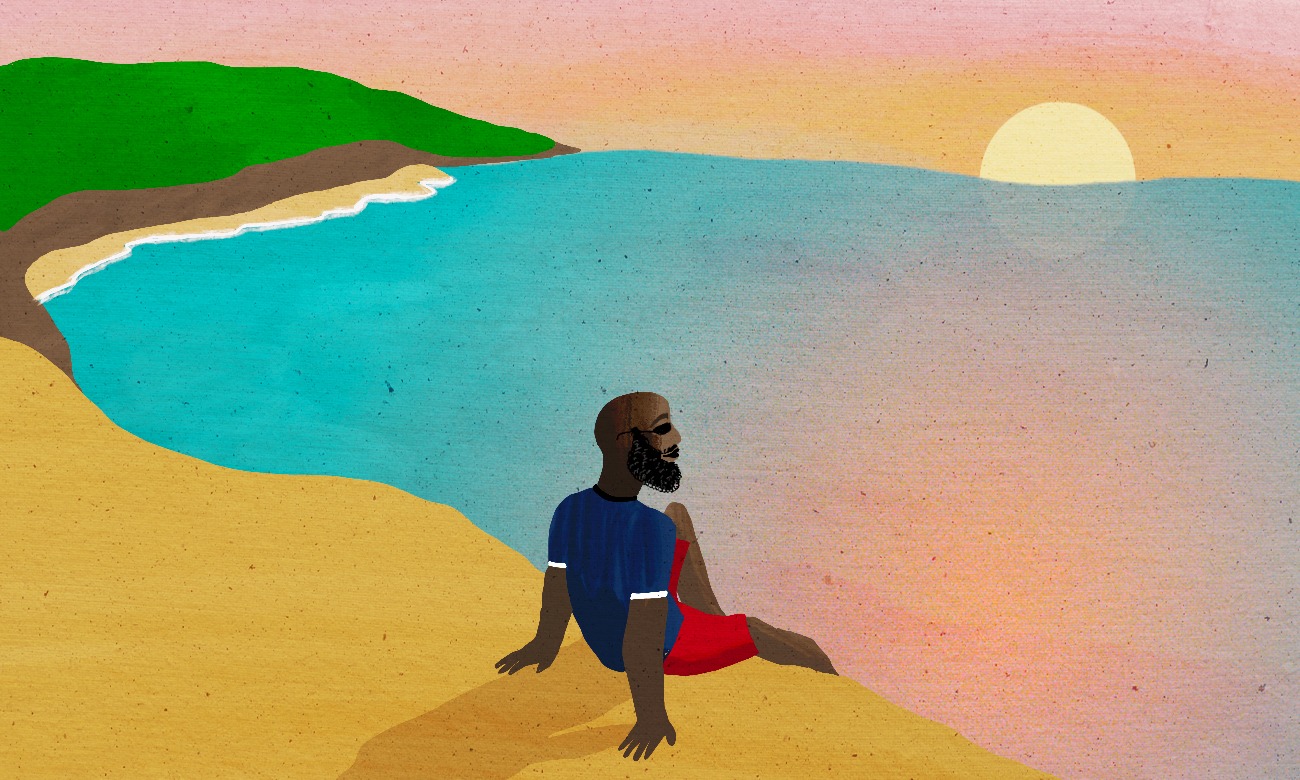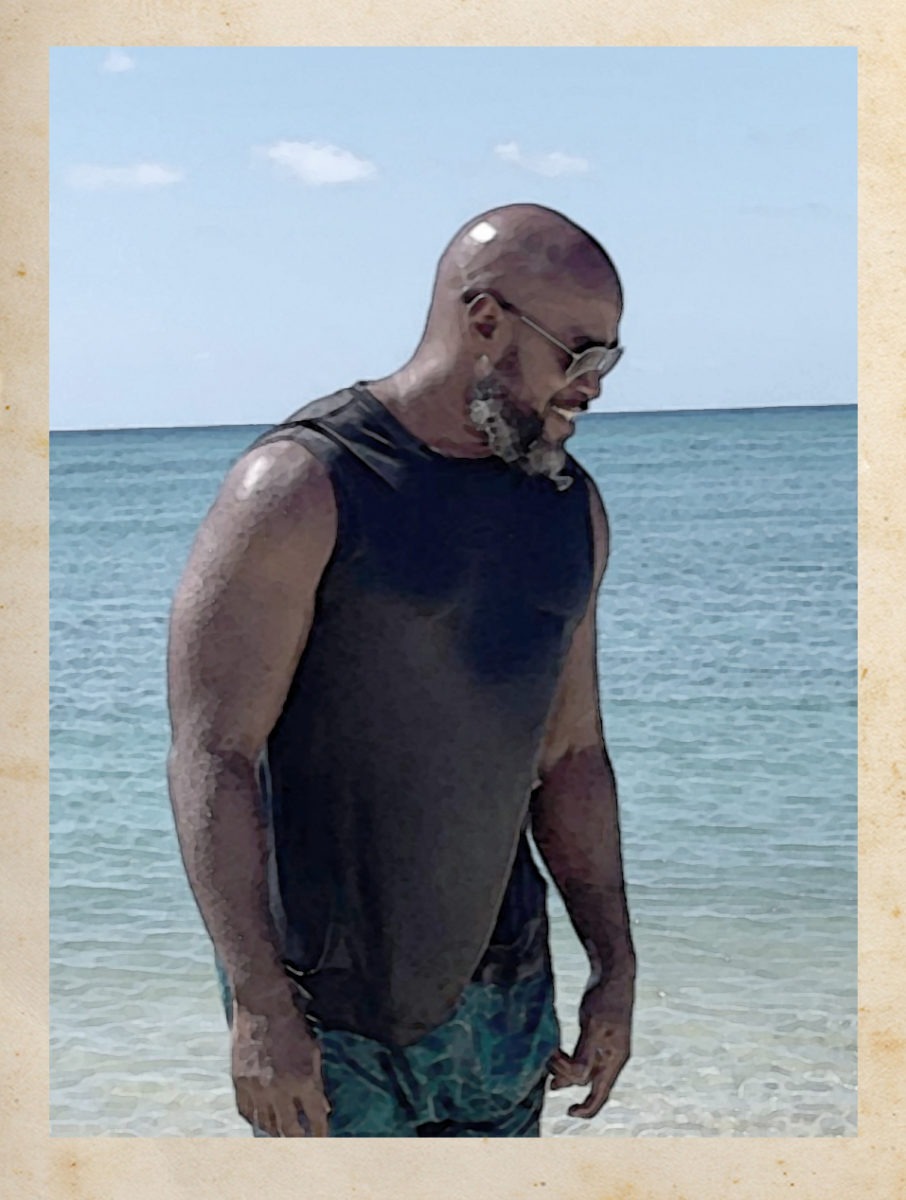Finally Free After Decades Locked up, a Former DC Resident is Shackled Again — This Time on a Deportation Flight
Third in a three-part series on a teenager with a tumultuous childhood who was sent to die in prison and where his life would lead. The following narrative was compiled from interviews and court records.

This article is being co-published with The Imprint, a national nonprofit news outlet covering child welfare and youth justice. Read Part Two of the series here.
Cordell Miller, 49, ached for freedom after spending three decades in federal prisons and three months in the custody of the U.S. Immigration and Customs Enforcement.
Last April, as he boarded a flight to his Jamaican homeland, he was told he was free. He didn’t feel free. Yet again, he found himself handcuffed, with iron shackles choking his ankles.
On the flight, Miller tried to drown out the chaotic conversations of the other passengers — 26 men and two women who were also being deported. Reality was setting in. He was no longer incarcerated. But there was also uncertainty.
“What am I going to do?” he asked himself repeatedly.
What a ‘second chance’ looks like
Miller had a tumultuous childhood that included the murder of his father, the loss of his beloved grandmother, his primary caregiver, and an untenable home where he experienced physical and emotional abuse from his mother. Often on the streets, he was first arrested at age 13, along with a group of friends, for stealing a schoolmate’s coat. That led to probation violations and a series of group homes and juvenile detention. Next came homelessness in his teenage years. That made him prey: A Brooklyn drug dealer offered him a job selling drugs, which Miller accepted.
That fateful decision soon took him to Washington, D.C., where at 17, Miller and four others robbed and killed his then-drug supplier and two others, according to court records.
He was convicted of a triple homicide and sentenced to 97 years to life.
Yet three decades into his sentence, Miller sought relief through new legislation that offered youthful offenders a second chance. In April 2021, Washington, D.C.’s Second Look Amendment Act became law. It allows incarcerated people who were convicted before age 25 and have served at least 15 years of their sentence to appeal to a judge for resentencing. The judge must consider the petitioner’s family and life circumstances at the time of the offense, including any history of abuse, trauma, or involvement in the child welfare system. Miller was released.

Miller greets the ocean
As Miller stepped off the plane onto the island last spring, he was escorted by more than two dozen local police officers. A few mocked him, saying he’d abandoned his homeland for the “land of the free” and ended up right where he started. Miller shrugged it off. He simply wanted to get through the paperwork of arrival and embark on his new beginning.
His cousin met him at the airport he last visited when he was a young teen visiting his grandmother. A series of firsts-in-a-long-time came next: A tasty meal of jerk red snapper and a deliciously sweet, cold sorrel drink. A family trip to the beach.
“I sat in the ocean and started crying,” Miller recalled during one of numerous interviews over several months.
But the joyous moments would quickly turn to new obstacles. In the U.S., he had solid job offers, multiple places to live, reentry services, and a robust support system. The U.S. was his home, he’d cultivated relationships behind bars with Georgetown University’s Prisons and Justice Initiative and had served as a mentor to incarcerated youth. Now, on a Caribbean island nation still reeling economically from the pandemic, where one in four residents lives in poverty, those avenues didn’t exist.
With nearly $5,000 Miller’s friends and family raised through a GoFundMe campaign before his release, he rented a room in a house close to his extended family, an arrangement that soon became financially burdensome. When he purchased groceries for himself, his family expected him to share, and he did. So after a short while, he realized his nest egg would soon disappear.
“Everybody thinks this is the land of the beautiful but they forget about the poverty-stricken part of it. The violent part of it,” Miller said. After a few weeks, he moved to a less expensive accommodation. It was a quiet, gated community, just outside of Ocho Rios. In the mornings, he would take long, meandering walks to the sound of birds chirping instead of the command of a prison guard.
Home life was peaceful, but some adjustments weren’t as easy. His new friends poked fun at him for eating with a spoon, unaware that forks and knives weren’t allowed in prison. Now, when he goes grocery shopping, he still reaches for his commissary favorites: tuna, mackerel, crackers, Cup Noodles, and mayonnaise. Acclimating to new environments is the hardest, particularly large crowds — in his mind, potential danger lurks everywhere. No matter where he goes, his back has to face the wall, his eyes on the door and scanning everyone in the room.
When his fiancé, Tyresa Washington, visited him for the first time in June, they spent a week at the Moon Palace Resort in Ocho Rios. Miller didn’t want to leave the hotel room because he had become so accustomed to being in a cell. Eventually, he followed his fiancé’s lead and tried to live in the moment. They swam in the clear ocean, got couples’ massages, and had a candlelit dinner on the beach. But Miller’s spirit was never settled.
“I didn’t know how to enjoy myself as a civilian,” he recalled.
Assessing someone’s intention within seconds was crucial to survival in prison. He let his guard down once while sitting in his cell writing a letter, and a man came from seemingly nowhere and stabbed him. So, there he was free and feeling the sun on his skin, but worried danger was imminent.
“I’m thinking everybody’s watching me,” he said, and “I’m watching them.”
Miller wanted to share in his fiancé’s excitement, to be happy, but couldn’t find his way there. Friends would give him a simple directive, “Enjoy yourself. Be glad that you’re free.” He’d smile when they said that. But the truth was more complicated, he said simply: “I don’t know how.”
Miller looked happy in the photos from his time at the Moon Palace, but he’s the first to tell you he wasn’t. “I was so sad on the inside,” he recalled. “A sadness that had nothing to do with no one else.”
He was still trapped in his mind.
“Physically my body is out here but my mindset is somewhere else,” he said. “Yes, I’m free. But I don’t feel free.”
Adjusting to life on the outside will take some time, and Miller is a patient man.
After spending time at a local gym, he was eventually hired as a personal trainer and is building his client base.
Miller — who first went to prison as a teen offender and left as a mentor for youth — still believes his calling is to work with young people. He wants to be the kind of person he wished he had in his life, and he’s certain he’ll get there.
As he approaches age 50, he reflected: “I really believe my story is just beginning.”
This story was supported by the Alicia Patterson Foundation where Sylvia A. Harvey was a 2022 fellow.
